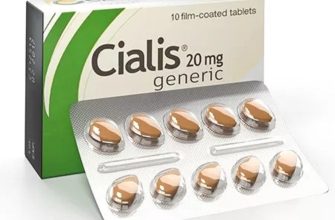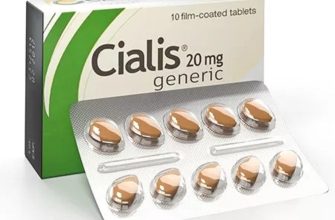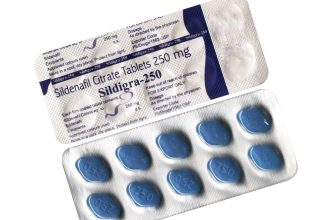Need quick relief from asthma symptoms? Relion Ventolin HFA, a brand of albuterol sulfate inhaler, provides rapid-acting bronchodilation. This means it opens your airways, easing breathing difficulties within minutes. It’s crucial to use it as prescribed by your doctor.
Always follow the instructions on your inhaler carefully. Proper technique ensures optimal delivery of medication to your lungs. Incorrect usage can significantly reduce its effectiveness. Consult your doctor or pharmacist for personalized guidance on inhaler technique and dosage.
Relion Ventolin HFA is a rescue inhaler, designed for immediate symptom relief, not for long-term asthma control. For ongoing management, your doctor may prescribe a controller medication, such as an inhaled corticosteroid. Using both medications as directed is key to managing your asthma effectively.
Side effects are possible. Common ones include headache, tremors, and nervousness. Serious side effects are rare but require immediate medical attention. This medication may interact with other drugs; inform your doctor about all medications and supplements you are taking. Keep your inhaler out of reach of children.
Remember: This information is for educational purposes only and does not replace professional medical advice. Always consult your doctor before starting or changing any medication, including Relion Ventolin HFA. They can assess your specific needs and create a personalized asthma management plan.
- Relion Ventolin HFA: A Detailed Guide
- Understanding Your Dosage
- Common Side Effects and Precautions
- Storage and Handling
- Metered Dose Inhaler (MDI) Technique
- When to Seek Immediate Medical Attention
- Further Information
- Understanding Relion Ventolin HFA: What it is and How it Works
- Using Relion Ventolin HFA Correctly: Dosage and Administration
- Potential Side Effects and Precautions of Relion Ventolin HFA
- When to Seek Medical Attention While Using Relion Ventolin HFA
- Relion Ventolin HFA and Other Medications: Interactions and Considerations
- MAO Inhibitors
- Beta-blockers
- Other Medications Affecting the Heart
- Theophylline
- Alcohol
- Individualized Approach
- Seeking Professional Guidance
Relion Ventolin HFA: A Detailed Guide
Always follow your doctor’s instructions for using Relion Ventolin HFA. This medication helps open your airways, relieving symptoms of asthma and COPD. Proper inhalation technique is key to maximizing its benefits. Practice using the inhaler correctly with your doctor or pharmacist.
Understanding Your Dosage
Your prescribed dosage depends on your individual needs and condition severity. Never adjust your dosage without consulting your healthcare provider. Typical doses range from 1-2 inhalations, several times a day, as needed. Always check the label for specific instructions.
Common Side Effects and Precautions
Common side effects include a slightly sore throat, hoarseness, or a cough. These generally subside after a short time. However, promptly inform your doctor about any unusual or severe side effects, including rapid heartbeat, chest pain, or nervousness. People with specific health conditions, such as heart problems or high blood pressure, may require extra monitoring. Consult your doctor before using Relion Ventolin HFA if you are pregnant, breastfeeding, or taking other medications.
Storage and Handling
Store your inhaler at room temperature, away from direct heat and moisture. Protect it from freezing. Do not puncture or incinerate the canister. Dispose of used inhalers responsibly according to your local guidelines. Monitor the remaining medication amount; replace it when nearly empty to ensure consistent relief.
Metered Dose Inhaler (MDI) Technique
| Step | Action |
|---|---|
| 1 | Shake the inhaler well. |
| 2 | Remove the cap. |
| 3 | Breathe out completely. |
| 4 | Place the mouthpiece between your lips, and hold it firmly. |
| 5 | Begin to breathe in slowly. |
| 6 | Press down on the inhaler to release one dose, while still breathing in slowly. |
| 7 | Hold your breath for 10 seconds. |
| 8 | Breathe out slowly. |
| 9 | Repeat if necessary. |
| 10 | Replace the cap. |
When to Seek Immediate Medical Attention
Seek immediate medical attention if your breathing difficulties worsen suddenly or unexpectedly. Symptoms like wheezing, shortness of breath, or chest tightness that don’t respond to your inhaler require prompt medical evaluation.
Further Information
Always refer to the patient information leaflet provided with your Relion Ventolin HFA inhaler for complete details on usage, precautions, and potential side effects. This guide provides a summary and should not replace your doctor’s advice.
Understanding Relion Ventolin HFA: What it is and How it Works
Relion Ventolin HFA is a brand-name inhaler containing albuterol, a fast-acting bronchodilator. It quickly relieves symptoms of asthma and chronic obstructive pulmonary disease (COPD) by relaxing the muscles around your airways, widening them and making it easier to breathe.
How it works: Albuterol stimulates beta-2 receptors in your lungs. This triggers a cascade of events leading to smooth muscle relaxation. The result? Improved airflow and reduced wheezing, shortness of breath, and chest tightness.
Proper usage is key: Follow your doctor’s instructions precisely. Typically, you inhale one to two puffs as needed, but never exceed the prescribed dosage. Always rinse your mouth after use to minimize the risk of thrush (a fungal infection).
Important Considerations: Albuterol is a rescue medication for immediate relief, not a controller for long-term prevention. You might need a separate medication for daily asthma control. Consult your doctor regarding potential side effects, such as increased heart rate, tremors, or nervousness. If you experience any severe reactions, seek immediate medical attention.
Storage: Keep your inhaler at room temperature, away from direct heat and moisture. Check the expiration date regularly.
Remember: This information is for general knowledge and does not substitute professional medical advice. Always consult your physician or pharmacist for personalized guidance regarding your specific health needs and medication use.
Using Relion Ventolin HFA Correctly: Dosage and Administration
Always follow your doctor’s instructions precisely. The prescribed dosage varies depending on your individual needs and condition. Commonly, one or two inhalations are recommended.
Before using: Shake the inhaler well for at least 5 seconds. Remove the cap.
Inhalation technique: Exhale completely. Hold the inhaler upright, placing the mouthpiece between your lips. Begin inhaling slowly and deeply. Press down on the canister to release one puff as you continue inhaling. Hold your breath for 10 seconds, then exhale slowly. If your doctor prescribed two puffs, repeat the process after a 30-second pause.
Rinse your mouth with water after each use to reduce the risk of thrush (a fungal infection).
Cleaning: Clean the mouthpiece regularly with a damp cloth. Never use water to clean the canister itself.
Storage: Store your inhaler at room temperature, away from direct heat and sunlight.
Missed dose: Use the inhaler as soon as you remember. If it’s almost time for your next dose, skip the missed one and continue with your regular schedule. Never double the dose.
Side effects: Common side effects include tremor, headache, and a fast heartbeat. Consult your doctor if side effects persist or worsen.
Important Note: This information does not replace professional medical advice. Always consult your doctor or pharmacist for any questions regarding the medication.
Potential Side Effects and Precautions of Relion Ventolin HFA
Relion Ventolin HFA, like all medications, carries potential side effects. Common side effects include tremor, headache, and muscle cramps. These usually are mild and temporary.
Less common, but more serious, side effects require immediate medical attention. These include a rapid or irregular heartbeat, chest pain, and severe allergic reactions (such as hives, swelling of the face, lips, or tongue, and difficulty breathing).
Before using Relion Ventolin HFA, inform your doctor about all your health conditions, particularly heart problems, high blood pressure, hyperthyroidism, diabetes, or seizures. Also disclose all medications, including over-the-counter drugs and herbal supplements, you are currently taking.
Follow your doctor’s prescribed dosage carefully. Do not exceed the recommended dose. Improper use can lead to increased side effects and reduced treatment effectiveness.
If you experience any unusual symptoms, contact your healthcare provider immediately. They can assess your situation and provide appropriate guidance.
Keep Relion Ventolin HFA out of reach of children. Store it as instructed on the label to maintain its efficacy.
This information does not substitute professional medical advice. Always consult your doctor or pharmacist for detailed information and personalized guidance regarding Relion Ventolin HFA.
When to Seek Medical Attention While Using Relion Ventolin HFA
Contact your doctor immediately if you experience any of the following:
- Increased shortness of breath or wheezing despite using your inhaler.
- Rapid heartbeat or chest pain.
- Significant increase in the frequency of your asthma attacks.
- Difficulty breathing that prevents you from speaking in full sentences.
- Bluish discoloration of your lips or fingernails (cyanosis).
- Symptoms of a severe allergic reaction, such as hives, swelling, or difficulty swallowing.
- Your symptoms worsen despite increasing your inhaler usage as instructed.
- You need to use more inhalers per day than prescribed.
Seek immediate medical attention if you have an asthma attack that doesn’t respond to your usual treatment. Call emergency services or go to the nearest hospital if your breathing is severely compromised.
Regularly monitor your symptoms and medication usage. Keep your doctor informed about any changes in your condition. This proactive approach ensures optimal management of your asthma.
- Maintain a written record of your symptoms and medication use to share with your physician.
- Schedule regular check-ups with your doctor to assess your asthma control.
- Learn to recognize the early signs of an asthma attack and take action promptly.
Relion Ventolin HFA and Other Medications: Interactions and Considerations
Always inform your doctor or pharmacist about all medications you are taking, including over-the-counter drugs, supplements, and herbal remedies, before starting Relion Ventolin HFA. This includes prescription medications for other respiratory conditions, heart problems, or anxiety.
MAO Inhibitors
Avoid using Relion Ventolin HFA if you’re taking monoamine oxidase inhibitors (MAOIs). These medications can interact dangerously, increasing the risk of severe side effects.
Beta-blockers
Beta-blockers, commonly used to treat high blood pressure or heart conditions, can counteract the effects of Relion Ventolin HFA. This combination may reduce the effectiveness of your inhaler. Discuss alternative treatment options with your doctor.
Other Medications Affecting the Heart
Medications that affect your heart rate or rhythm, like digoxin or certain diuretics, may interact with Relion Ventolin HFA. Careful monitoring is often necessary. Your healthcare provider will assess the risks and benefits.
Theophylline
Concurrent use of Relion Ventolin HFA and theophylline (a medication used to treat asthma and COPD) can increase the risk of side effects. Close monitoring of your heart rate and blood levels is required.
Alcohol
While not a medication, alcohol can exacerbate the side effects of Relion Ventolin HFA, particularly those affecting the heart and central nervous system. Limit alcohol consumption while using this inhaler.
Individualized Approach
Remember: This information is not exhaustive. Your individual needs and medical history dictate the safety and appropriateness of combining Relion Ventolin HFA with other medications. Always consult with a healthcare professional for personalized advice.
Seeking Professional Guidance
Never self-adjust your medication dosage or stop taking prescribed medications without consulting your doctor. Open communication with your healthcare team ensures the safest and most effective treatment.







